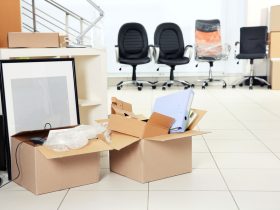Uninterrupted Power Supply (UPS) systems are essential for businesses aiming to maintain operational continuity. Be it for manufacturing, healthcare, or IT systems, the right UPS not only safeguards your equipment but also minimises downtime and protects sensitive processes. Selecting the proper system can seem like a challenging task, especially when considering the diversity in requirements across industries. Here’s a guide tailored to selecting the appropriate UPS power setup relevant to the specifics of your business.
Why UPS Systems are Crucial in Thailand
Thailand’s climate and its susceptibility to power disruptions make investing in UPS systems essential for businesses. From monsoon-induced outages to voltage fluctuations in urban and industrial areas, the potential for power instability is frequent. These issues can critically impact industries that rely on stable energy flows.
For example, hospitals need consistent power for lifesaving equipment, while manufacturers depend on uninterrupted operations to meet production timelines. Choosing an appropriate UPS can mitigate these risks, allowing for stable operations despite external uncertainties.
Types of UPS Systems to Consider
Different industries require different types of UPS systems depending on their energy demands. Understanding the options available is key to making an informed decision.
- Standby UPS
This is ideal for small-scale operations where minimal protection is adequate, such as in small offices or for personal use. It provides basic support against short-term power outages or mild fluctuations.
- Line-interactive UPS
Suited for businesses with moderate energy demands, such as small data centres or retail establishments, this option offers protection against prolonged voltage drops or surges.
- Online Double Conversion UPS
For industries like healthcare and banking, where even milliseconds of downtime can result in significant consequences, this type offers maximum protection. It ensures a consistent and clean power supply, accommodating industries requiring high energy reliability.
Factors to Evaluate Before Choosing a UPS System
When assessing which UPS system to select, some key considerations include:
- Load Capacity
Understand how much equipment you need to support during a power outage. This helps in determining the UPS size and capacity required.
- Runtime
Consider how long you may need the UPS to reliably power critical systems. Short outages may require only minutes of runtime, while longer disruptions may necessitate extended backup durations.
- Power Quality
Certain industries, such as IT and healthcare, depend on a steady flow of clean, stable energy. Ensuring minimal power fluctuation is a primary consideration in these cases.
- Environment
Consider where the UPS will be placed. Thailand, with its high temperatures and humidity, may require systems designed to withstand challenging environmental factors.
Maintenance is Key for Long-Term Dependability
Performing regular maintenance on your UPS system ensures prolonged efficiency and reliability. Components such as batteries and inverters must be checked periodically. Staying proactive with maintenance will minimise the risks of unexpected breakdowns or reduced performance.
Final Thoughts
Choosing a UPS system tailored to your industry ensures operational resilience and safeguards against damaging interruptions. By carefully evaluating your requirements, such as load capacity and environmental conditions, you can make a well-informed selection. With the proper UPS power solution in place, your business will be ready to face any challenges posed by Thailand’s power infrastructure.
If you’re still considering the ideal UPS for your industry, start by evaluating your needs and infrastructure to ensure you make the best investment for your organisation’s longevity.









